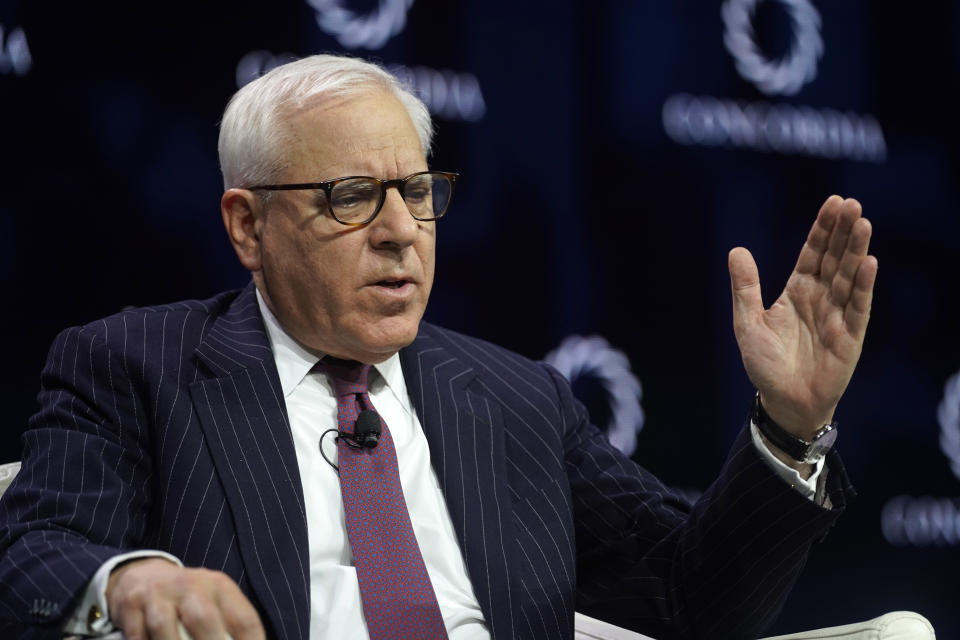David Rubenstein: People won't be 'rushing back to work' after COVID-19
The coronavirus pandemic is accelerating changes across the global economy, touching just about every sector. Now the question is figuring out the extent of those changes and deciphering the short-term shift in consumer preferences versus permanent change.
Billionaire investor and co-founder of The Carlyle Group (CG), David Rubenstein, told Yahoo Finance during its All Markets Summit on Monday that while it’s “an interesting phenomenon” when trying to figure out how quickly the world has changed because of the pandemic, one thing is very clear: you’re not going to see people “rushing back to work” in an office in a post COVID-19 world.
“The Industrial Revolution took about 100 years. The internet revolution took maybe 20 years. The smartphone took five to seven years. Now, in less than one year, we have basically said we're going to do things on the equivalent of what we're doing now, Zoom or the Zoom equivalent. It's amazing how many people have adapted to it in less than a year and many people I know do not want to go back to work in their offices.”

A survey from Gartner found that 74% of 317 surveyed CFOs expect a portion of their workforce to permanently work from home after the COVID-19 crisis as companies and employees see the benefits from flexible schedules, and in some cases, an increase in productivity. Earlier this spring, Facebook (FB) announced that a portion of its workforce would be able to work from home forever, with CEO Mark Zuckerberg estimating that as much as 50% of its workforce could be doing so in the next five to 10 years. Facebook’s announcement followed similar moves from Twitter (TWTR) and Shopify (SHOP).
Of course, there are investment implications of this. Zoom (ZM) has been a stay-at-home stock winner during the pandemic, with shares up more than 650% since the beginning of the year. And its competitors are among this year’s favorites as well with Microsoft Teams (MSFT), Slack (WORK) and Google Meet (GOOG, GOOGL) rapidly building their user base as companies shifted to a complete work-from-home model.
So what will the future of work look like? Rubenstein says it’s safe to bet people won’t feel the need to travel around the world for a half-hour meeting, but the need for human interaction isn’t going anywhere — and that part will continue to be critical.
“Human interaction has been the hallmark of how people get things done throughout history... I think they will want human interaction, but they’re going to come back to it slowly,” said Rubenstein. “The world will change in ways we can't predict. I do think that you’re going to see people adapting to this way of life for quite some time. Now ten years from now, who knows? I do think over the next couple of years you will not see people rushing back to work.”
Seana Smith is the anchor for The Final Round. Follow her on Twitter @SeanaNSmith
READ MORE:
Analyst: Holiday shopping will be 'very, very good' despite coronavirus, stimulus headwinds
Coronavirus second wave looms: 'Hope for the best but prepare for the worst'
Low oil prices is 'a train wreck in full speed': Parsley Energy CEO
Ex-health official: Coronavirus outbreak forcing Detroit residents to make an 'impossible choice'